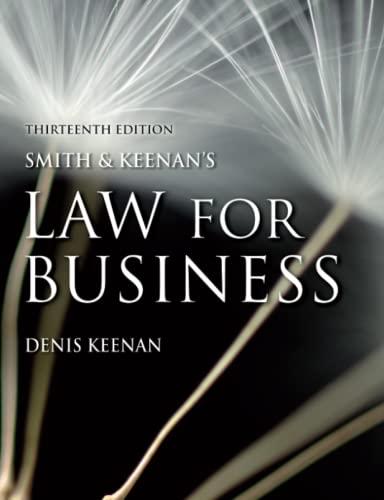Answered step by step
Verified Expert Solution
Question
1 Approved Answer
read and reply to this post and ask an outstanding question PART A (False Claims Act): Hypothesis: Increased awareness and enforcement of the False Claims
read and reply to this post and ask an outstanding question
PART A (False Claims Act):
- Hypothesis: Increased awareness and enforcement of the False Claims Act can lead to a reduction in fraudulent claims submitted to government healthcare programs such as Medicare and Medicaid.
- Law and its Statute: False Claims Act [31 U.S.C. 3729-3733]. The False Claims Act (FCA) serves to safeguard the Government against excessive charges or the sale of inferior goods and services. Furthermore, if a claim is generated through a kickback scheme or violates the Stark law, it may be deemed false or fraudulent, exposing the perpetrator to liability under the civil FCA, as well as the Anti-Kickback Statute (AKS) or Stark law (U.S. Department of Health and Human Services Office of Inspector General, n.d.).
- Legal Case: Cigna Group, based in Connecticut, was found to have breached the False Claims Act for the submission and failure to retract inaccurate and misleading diagnosis codes for its Medicare Advantage Plan participants, aiming to inflate Medicare payments. Within the Medicare Advantage (MA) Program, also recognized as Medicare Part C, Medicare beneficiaries have the choice of acquiring their Medicare-covered benefits through private insurance arrangements termed MA Plans. Cigna owns and operates Medicare Advantage (MA) Organizations that provide MA Plans to beneficiaries nationwide. Allegations arose that Cigna submitted misleading patient diagnosis information to CMS to boost payments, neglected to rectify this inaccurate data or reimburse CMS, and falsely attested to the accuracy of the information to CMS. Cigna agreed to settle allegations of False Claims Act violations by paying $172,294,350 (Office of Public Affairs U.S. Department of Justice, 2023).
- Violation: It is unlawful to present Medicare or Medicaid with claims for payment that are knowingly false or deceptive. Engaging in such fraudulent behavior can lead to penalties amounting to three times the programs' losses, along with an additional $11,000 per false claim filed. Each item or service billed to Medicare or Medicaid is considered a separate claim under the civil FCA, meaning that fines can accumulate rapidly (U.S. Department of Health and Human Services Office of Inspector General, n.d.).
- Compliance: HCOs can employ predictive analytics programs to detect irregular and questionable billing patterns before claim submission. By adopting such a program, institutions and physician groups can proactively identify and address potential issues, reducing inadvertent errors, mitigating financial liabilities, and enhancing patient safety (Drabiak and Wolfson, 2020).
PART B (Anti-Kickback Statute or Stark Law):
- Hypothesis: Strict enforcement of the Anti-Kickback Statute reduces instances of fraudulent inducements in healthcare transactions, leading to improved integrity within the industry and better patient outcomes.
- Law and its Statute: Anti-Kickback Statute [42 U.S.C. 1320a-7b(b)]. The Anti-Kickback Statute (AKS) is a criminal law that prohibits the deliberate and knowing exchange of "remuneration" to incentivize or compensate for patient referrals or the solicitation of business involving any item or service reimbursable by Federal healthcare programs (e.g., medications, supplies, or healthcare services for Medicare or Medicaid beneficiaries) (U.S. Department of Health and Human Services Office of Inspector General, n.d.).
- Legal Case: Flower Mound Hospital, based in Texas, was found to have breached the False Claims Act by knowingly presenting claims to Medicare, Medicaid, and TRICARE programs, stemming from infractions of the Physician Self-Referral Law and the Anti-Kickback Statute. The hospital engaged in repurchasing shares from physician-owners aged 63 or older and subsequently selling those shares to younger physicians. The United States contends that Flower Mound Hospital unlawfully considered the volume or value of specific physicians' referrals in two ways: first, in the selection of physicians for share resale, and second, in determining the allocation of shares to individual physicians. Flower Mound Hospital Partners LLC (Flower Mound Hospital) consented to pay $18.2 million to settle accusations of False Claims Act violations. As part of the settlement, Flower Mound Hospital has entered a five-year Corporate Integrity Agreement (CIA) with the HHS-OIG. The CIA mandates several measures, including the establishment of a compliance program and the engagement of an Independent Review Organization to assess the hospital's arrangements. Additionally, it enhances individual accountability by necessitating compliance-related certifications from key executives. The civil settlement encompasses the resolution of allegations raised under the qui tam provisions of the False Claims Act by Dr. Leslie Jennings, a physician-owner affiliated with Flower Mound Hospital who received $3 million as his share of the settlement (Office of Public Affairs U.S. Department of Justice, 2021).
- Violation: Penalties for breaching the AKS consist of both criminal repercussions and administrative measures, which may involve fines, imprisonment, and exclusion from Federal healthcare program participation. Additionally, under the Civil Monetary Penalty Law (CMPL), physicians involved in kickback transactions may incur fines of up to $50,000 per instance, along with threefold the amount of the remuneration exchanged (U.S. Department of Health and Human Services Office of Inspector General, n.d.).
- Compliance: HCOs can ensure compliance and minimize exposure risks by employing skilled quality assurance and compliance staff and leveraging educational resources provided by CMS for continuous learning (Drabiak and Wolfson, 2020).
Step by Step Solution
There are 3 Steps involved in it
Step: 1

Get Instant Access to Expert-Tailored Solutions
See step-by-step solutions with expert insights and AI powered tools for academic success
Step: 2

Step: 3

Ace Your Homework with AI
Get the answers you need in no time with our AI-driven, step-by-step assistance
Get Started


